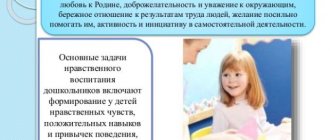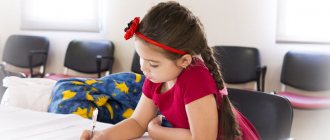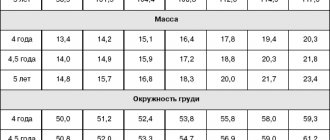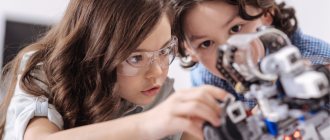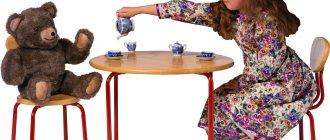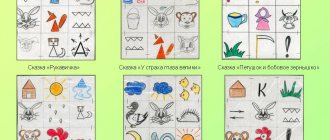The role of children's fiction in the formation of personality and all-round development of the child
Introduction
Preschool childhood as a period in human life plays an important role in shaping what not only each individual person will become, but also all of humanity and the world as a whole. The educational, ideological, moral, and cultural priorities laid down in preschool childhood determine the life path of generations and influence the development and state of the entire civilization.
The importance of introducing children to the beauty of their native word and the development of a culture of speech was pointed out by teachers, psychologists, and linguists (K. D. Ushinsky, E. I. Tikheyeva, E. A. Flerina, L. S. Vygotsky, S. L. Rubinshtein, A. V. Zaporozhets, A. A. Leontyev, F. A. Sokhin, A. M. Shakhnarovich, L. I. Aidarova, etc.)
Fiction accompanies a person from the first years of his life, and in preschool childhood the foundation is laid on which all subsequent acquaintance with the vast literary heritage will be based. Reading books to children serves as one of the conditions for the development of hearing, and on this basis, the acquisition of language.
Fiction serves as a powerful, effective means of mental, moral, and aesthetic education of children, and has a huge impact on the development and enrichment of a child’s speech. It enriches emotions, cultivates imagination and gives the child excellent examples of the Russian literary language.
These examples differ in their impact: in stories, children learn conciseness and precision of words; the poems capture the musicality, melodiousness, and rhythm of Russian speech; folk tales reveal to them the accuracy and expressiveness of the language, show how rich their native speech is in humor, lively and figurative expressions, and comparisons. (N.S. Karpinskaya).
Preschool children are listeners, not readers; a work of art is conveyed to them by an adult.
The love he developed for books in preschool will stay with him forever. Anyone who reads knows a lot. If a child understands the content of what he read, it means he thinks, analyzes, and reasons.
Introducing children to fiction gives better results if the efforts of educators and parents are combined.
The relevance of the problem of literary education for preschool children at the present stage is due to the fact that children are increasingly becoming acquainted with fiction through the Internet and television. In recent decades, there has been a decline in interest in books among both adults and children, resulting in a decrease in the personal culture of preschool children. With the advent of television and computers, the flow of information hit people with unprecedented force. Children master the computer before they learn to read, and navigate the keyboard better than the table of contents of books. In this regard, we, teachers of a preschool educational institution, are concerned with how to pedagogically correctly develop creativity in the perception of books, enrich the spiritual and cultural level of pupils. In the general system of personal development of the younger generation, the question of the peculiarities of children’s perception of books is one of the most pressing in psychology and pedagogy today. The main factor in a child’s attitude towards a book and the criteria for its evaluation is the presence or absence of interest in reading.
Modern children spend more and more time playing computer games and watching TV. Sociological research in our country and abroad has revealed negative trends: interest in reading among younger preschoolers and adolescents is noticeably reduced; The share of reading in children's free time has been sharply reduced. Many modern children do not know the heroes of good old fairy tales, preferring to them the heroes of blockbusters and computer games. Of course, every time has its own literary heroes, but it is no coincidence that fairy tales and legends have been passed down from generation to generation for many years and serve as an excellent educational tool.
Children have stopped reading, which means literacy, intelligence, emotional and moral education, and many components of harmonious personal development suffer.
Without reading, a person does not develop, does not improve his intellect, memory, attention, imagination, does not assimilate and use the experience of his predecessors, does not learn to think, analyze, compare, and draw conclusions. The book, on the contrary, makes it possible to speculate, to “fantasize.” It teaches you to think about new information, develops creativity, artistic abilities, and the ability to think independently.
Fiction serves as a powerful, effective means of mental, moral and aesthetic education of children; it has a huge impact on the development and enrichment of children's speech.
In poetic images, fiction reveals and explains to the child the life of society and nature, the world of human feelings and relationships. It makes emotions more intense, fosters imagination and gives preschoolers excellent examples of the Russian literary language.
Our task is to introduce pupils to children's literature and children's reading, interacting with parents. We want our children to be literate readers. In order to raise a reader in a child, the adult himself must show interest in the book, understand its role in a person’s life, know those books that will be important for the child, follow the latest in children’s literature, be able to have an interesting conversation with the child, and be sincere in expressing one’s feelings.
The role of children's fiction in the formation of a child's personality and speech development.
Children's books are considered as a means of mental, moral and aesthetic education. Children's poet I. Tokmakova calls children's literature the fundamental basis of education. According to V. A. Sukhomlinsky, “reading books is the path along which a skillful, intelligent, thinking teacher finds the way to a child’s heart.” Fiction shapes moral feelings and assessments, norms of moral behavior, and cultivates aesthetic perception.
Works of literature contribute to the development of speech and provide examples of the Russian literary language. E. A. Flerina noted that a literary work provides ready-made linguistic forms, verbal characteristics of the image, definitions with which the child operates. By means of artistic expression, even before school, before mastering grammatical rules, a small child practically masters the grammatical norms of the language in unity with its vocabulary.
N. S. Karpinskaya also believed that a fiction book provides excellent examples of literary language. In stories, children learn laconicism and precision of language; in poetry - musicality, melodiousness, rhythm of Russian speech; in fairy tales - accuracy, expressiveness.
From the book, the child learns many new words and figurative expressions, his speech is enriched with emotional and poetic vocabulary. Literature helps children express their attitude to what they have heard, using comparisons, metaphors, epithets and other means of figurative expression.
When reading the book, the connection between speech and aesthetic development clearly appears; language is assimilated in its aesthetic function.
The development of speech is closely related to the development of consciousness, knowledge of the surrounding world, and the development of the personality as a whole.
Research by domestic psychologists and psycholinguists has proven that mastering speech does not just add something to a child’s development, but rebuilds his entire psyche and all his activities. (Alekseeva M.M., Yashina B.I. Methodology for the development of speech and teaching the native language of preschoolers: A textbook for students of higher and secondary education, pedagogical educational institutions. - 3rd ed., stereotype. - M. : Publishing House, 2000. - 400 pp.)
The native language is a means of mastering knowledge and studying all academic disciplines in school and subsequent education. Based on a long study of the processes of thinking and speech, L. S. Vygotsky came to the following conclusion: “There is every factual and theoretical basis to assert that not only the intellectual development of a child, but also the formation of his character, emotions and personality as a whole is directly dependent on speech" (Vygotsky L.S. Mental development in the learning process).
In poetic images, fiction reveals and explains to the child the life of society and nature, the world of human feelings and relationships. It enriches emotions, cultivates imagination and gives the child excellent examples of the Russian literary language. These examples differ in their impact: in stories, children learn conciseness and precision of words; the poems capture the musicality, melodiousness, and rhythm of Russian speech; folk tales reveal to them the accuracy and expressiveness of the language, show how rich their native speech is in humor, lively and figurative expressions, and comparisons.
Family reading is of particular importance for a child’s reading destiny. Reading together brings adults and children together, stimulates and fills rare and joyful moments of spiritual communication with content, and cultivates a kind and loving heart in a child.
Family reading traditions are a very important part of the family education system. Family reading is not a way to get information, it is the most important and best way of communication and unobtrusive education, which is the most effective. Parents, through family reading, help to instill an interest in reading in children.
A successful find in working with parents is the project method.
Today it is becoming more and more widely used in the pedagogical practice of our institution. The project method is the training and education of a child through activities, and when working with families, through the joint activities of children and parents.
Priority of thematic weeks
Working on thematic weeks increased teachers’ interest in creating projects and using active forms of interaction. The main goal of working on thematic weeks is to systematize, deepen, and generalize children’s knowledge on a specific topic.
The theme of the week allows you to combine all types of children's activities, make them interesting, and as useful as possible for children. Activities held during the theme week contribute to the development of creative interaction between students, teachers, preschool specialists, and parents. Various forms of events are used: travel games, educational activities, observations, excursions, exhibitions, experiments...
Thematic planning in a preschool educational institution allows you to make a child’s life interesting, creative, varied, gives him the opportunity to immerse himself in a topic and better understand it.
Thematic weeks are a comprehensive form of methodological and educational work that unites all participants in the pedagogical process around a current problem. They involve the implementation of such an approach to the implementation of methodological and educational work in kindergarten, which allows you to involve teachers, parents and children in active search, research and creative activities.
Advantages of this approach:
— high efficiency due to the inclusion of each participant in active activities;
— development of flexibility of thinking, the opportunity to express one’s individuality and creativity;
— an opportunity for reflection, analysis and evaluation of one’s activities (feedback);
— the opportunity to introduce integrated forms of organizing the educational process into the practice of preschool educational institutions; variability in the use of forms and methods of work with both adults and children;
- an opportunity to involve parents in children's activities as equal communication partners;
— an opportunity for prompt and at the same time systematic solutions to current problems;
— the emergence of conditions for the unity of all participants in the pedagogical process, the formation of kindergarten traditions;
- an opportunity to enrich the subject-development environment of a preschool educational institution, for fruitful interaction with the surrounding society.
Thematic weeks are based on the principle of integrating different types of activities that affect all areas of the child’s personality development.
One of the pedagogical conditions for the effectiveness of the thematic week is the interaction of preschool specialists, educators and parents, aimed at creating favorable conditions for the development and self-expression of children.
The topic should be relevant, interesting and pedagogically appropriate. Thematic weeks are characterized by a clear structure, subject to a specific algorithm, including the phased implementation of all components.
Educational project “Book Week”
Project duration: 1 week (from 03/30/2015 to 03/03/2015)
Age of children : senior group (5 – 6 years old)
Project goals:
— attracting the attention of teachers and parents to the problem of using children's books and literary works;
— introduction into practice of various forms and methods of working with literary works that contribute to the familiarization of children with books for the development of cognitive, creative and emotional activity of children;
— to involve parents in joint creativity within the framework of “Book Week”;
— to cultivate a desire for constant communication with the book and caring for it.
— updating the importance of parents’ participation in the formation of children’s book culture, creating conditions for the active introduction of literary experience into the creative activities of students.
Project objectives:
| Children | Parents | Teachers |
| - introducing preschool children to fiction, - developing interest in books and children's reading, acquiring a stock of literary artistic impressions, and listener experience; — fostering a value-based attitude towards a book as a work of art; — formation of the personal position of preschool children both in the perception of literary works and in the creative process; — development of cognitive, creative and emotional activity in the process of introducing preschoolers to literature; - expanding children's horizons, enriching and activating vocabulary (cover, binding, illustration, typography, font, manuscript, parchment, papyrus, birch bark, encyclopedia, dictionary, etc.); — development of children’s creative abilities to express their impressions in various types of productive activities; — developing in children the skills of cooperation with peers and adults in the process of joint activities. | — introducing a variety of methods of working with books into the practice of family education — involving parents in creating conditions for developing children’s interest in books at home and in kindergarten; — increasing parental competence in the process of children's reading. | -increasing the professional level of teachers on organizing work with books and literary works; — activation of the creative potential of teachers; — development of methodological materials “Working in the book corner” (card index of games, methods and techniques for working with literary works, notes for classes, leisure and other events); — introduction into pedagogical practice of various forms and methods of working with literary works for the development of cognitive, creative and emotional activity of children. |
Methods:
— Visual (organization of exhibitions, presentations, book corners, etc.)
— Verbal (conversations, quizzes, competitions, literary riddles, etc.)
- Practical (cognitive - speech and productive activities of children, excursion to the library, participation of children in holidays and leisure activities).
Progress of the event
| Monday | ||
| The first half of the day | Grand opening of "Children's Book Week". (Holds out in the music room). Invited guests (librarians) conduct a conversation with children on the topic “It’s the book’s birthday!” (a message about where and when “Children’s Book Week” was born); Message from a librarian about books celebrating anniversaries. Game “Fairy Tales. Fairy tales. Fairy tales" (Appendix 1) Inviting children to visit the Library. | |
| Afternoon | Excursion to the library. Let's get acquainted with the work of book curators. (Play as a plot-role-playing game “Journey to the World of Books”). | |
| Tuesday | ||
| The first half of the day | Preparation for the theatrical performance “Fly – Tsokotukha”. Creative workshop: preparing decorations (masks, outfits, attributes for a fairy tale - samovar, big money, cups, etc.) We invite parents to take part in preparing for the performance. | |
| Afternoon | Organization of the plot-role-playing game: “Book “Ambulance” (together with the children we “treat” books). (Prepare “medical” gowns, caps, glasses, bandages - tape, glue, stretchers, etc.) | |
| Wednesday | ||
| The first half of the day | Making handwritten homemade books - “Little Books” (joint creativity of children and parents, children and teachers); Design of exhibitions based on the results of creativity. | |
| Afternoon | Literary quiz “Journey through fairy tales” Taken together with parents. (Appendix 2) | |
| Thursday | ||
| The first half of the day | Artistic creativity (drawing): “My favorite fairy-tale hero.” Round dance games with playful choruses: “Birch”, “Seal”. (Appendix 3) | |
| Afternoon | Exhibition of children's drawings based on fairy tales. “Turnip” Folk game – entertainment. (Appendix 4) | |
| Friday | ||
| The first half of the day | Organization of the plot-role-playing game “Bookstore”. Exhibition of children's drawings based on fairy tales. | |
| Afternoon | Closing ceremony of Book Week. Exchange of “Little Books” as souvenirs. Theatrical performance “Fly – Tsokotukha” (in the music room for children and parents of other groups). Tea party with Mukha - Tsokotukha and her guests. | |
Conclusion
The above-mentioned project is also relevant because it allows for the integration of educational areas: cognition, socialization, communication, reading fiction, artistic creativity, music, work.
Thus, we can conclude that the purposeful and systematic use of methods and techniques to introduce children to fiction will help to cultivate in children interest and love for books, works of art, and the literary word.
Raising a reader capable of perceiving a work of art in all its richness is a long and difficult process. But if the initial stage of introducing a child into book culture is successful, the number of people who are unable or unwilling to join the spiritual experience of humanity through books will be significantly reduced.
Bibliography:
1. Alekseeva M.M., Yashina B.I. Methods of speech development and teaching the native language of preschoolers: Proc. aid for students higher and Wednesday, ped. textbook Establishments. — 3rd ed., stereotype. - M.: Publishing House, 2000. - 400 p.
2. Bolsheva T.V. We learn from a fairy tale. - St. Petersburg, 2001.
3. Borodich A.M. Methods for developing children's speech. – M., 1974.
4. Gurovich L.M. Child and book / L.M. Gurovich, L.B. Beregovaya, V.I. Loginova. – M., 1999.
5. Childhood: Development and education program in kindergarten / V.I. Loginova, T.I. Babaeva, N.A. Notkina et al.. Ed. T.I. Babaeva, Z.A. Mikhailova, L.M. Gurovich: Publishing house. 2nd. – St. Petersburg, 1997.
6. Zaporozhets A.V. Psychology of a preschool child’s perception of a literary work // Izbr. psychol. Proceedings / A.V. Zaporozhets in 2 volumes. – M., 1986. – vol. 1.
7. Ushakova O.S., Strunina E.M. Methods of speech development for preschool children. – M., 2003.
About the benefits of reading for children
Every person remembers his childhood, mentally returning to it again and again. Wasn’t it happiness for you, in your favorite corner of the house, to be transported into the world of fairy tales, valor and honor, the world of friendship and devotion, a world in which the soul of a person and his moral qualities are valued? To a world where all the beauty of our native nature is shown, all the greatness of our Motherland, a world in which good triumphs over evil, showing the child what is good and what is bad? It is not for nothing that in many manuals for young mothers, an example is reading to your child Mayakovsky’s poem “What is good and what is bad,” which expands children’s knowledge about good and bad deeds, about norms of behavior, develops the desire for good, correct actions and the ability to avoid negative choice.
Is it possible to imagine an intelligent, highly moral, educated person without a love of literature? This question becomes very important during the development of a child, the formation of his personality, because it is through literature that children receive basic information about the qualities of people, about life, justice, about the power of love and kindness, friendship and devotion. It is through literature that a child’s patriotism is formed, a certain connection with his homeland appears, a kind of invisible thread connecting the child’s inner world with a work of art.
How can a child who read Turgenev’s story “Mumu” remain indifferent? Will he not think about the value of life and love? About the fact that there can be real, sincere friendship between a person and an animal? What emotions will the child experience as he reads line by line, feeling all the love, pain and torment of poor Gerasim? Isn’t it these feelings that should shape the moral qualities of children? Doesn't this affect the formation of a highly moral personality?
